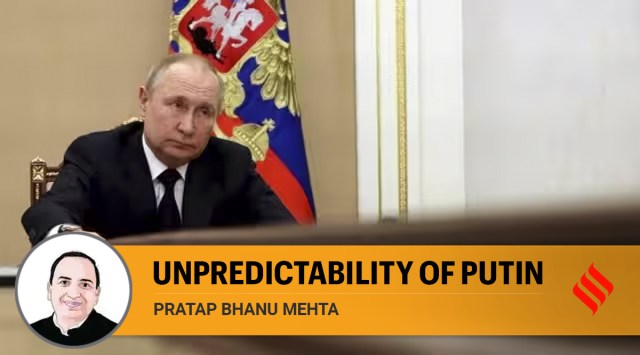
Political developments in America and Europe over the last few weeks are again putting a spotlight on the global politics of the war in Ukraine. In the US, the Republican Party seems to be hardening its scepticism over funding to Ukraine, while pro-Russia political forces are gaining strength in Europe. In the rest of the world, the war is becoming increasingly invisible. So where do we stand in the war, and how might it play out?
There was, potentially, a third issue at stake: The possible use of nuclear weapons. This risk never entirely fades, so long as the weapons exist. But at least on this event, Putin’s allies like China drew a red line.
Much to everyone’s surprise, Russia failed to subjugate Ukraine. Russia lost every one of its strategic objectives — if the objective was to prevent NATO expansion (which it never was), it lost; if it was a recreation of its empire, it lost. Ukraine was forged as a nation. The political challenges it now faces in the global system are, in part, a consequence of its success.
There are three issues at stake. First, how do the objectives of the war now get defined? Ukraine has every right to defend its territory. But the rest of the world, it seems, had more sympathy for Ukraine reasserting its sovereignty rather than reclaiming all of its territory. The world had let the Russian invasion of Crimea pass by relatively unpunished. The moral stakes in a war where an entire country is being gobbled up and its sovereignty obliterated, versus a war where the issue is whether Ukraine can reclaim the last 15 or 20 per cent of its territory look very different. Is a protracted war for another year or more, with possibly another couple of hundred thousand casualties, the deferred return of refugees and the postponed project of rebuilding, worth it? This question looks very different from the question: Should Ukraine exist as a viable sovereign country? Ultimately, this is a question for Ukraine to answer. But it is a question that is being asked around the world.
Second, one of the most remarkable things about this war has been how we have constantly been surprised by the way the secondary effects of the war have played out on economies and societies. Putin may have gambled that Europe’s energy dependence on Russia would make it vulnerable to the point that it could not stand up to Russia. But perhaps equally, predictions about how sanctions might get the Russian economy to collapse proved to be unfounded. Russia’s long-term growth prospects may have been hit, but it is nowhere near being in the zone of an unsustainable economy on the verge of collapse. And, after some initial concerns, the rest of the world has shrugged off the costs of the war. Putin’s initial calculation that the cost of the war would cause a polarising rift in the West as energy prices rise may have been off the mark. But, there is a sense in which the cost of the war is belatedly becoming a domestic political issue in the West. So in the end, the outcome of the war may depend not on the question of objectives, but on the question of capabilities. There is absolutely no doubt that Russia has imperial ambitions. But it has discovered it does not have the material and organisational capabilities to execute that ambition in the face of resistance. In a different way, the West has to confront the question of the degree to which democracies can sustain material support for this war. Do these limits now push the parties to at least some negotiated settlement?
The third question is the situation on the ground in Ukraine. It is striking, the degree to which the current status quo on the ground is being increasingly described as a stalemate, as if Ukraine did not manage to achieve its objectives. This, perhaps, an unfair description of what Ukraine has managed to achieve, and what the nature of the war is like. But it is an open question how this war of attrition, with incremental gains, will play out for Ukraine. Putin now has everything to play for in terms of time, at least till the next presidential election in the US. His best hope is that Western financial and military support for Ukraine will dwindle, driven largely by the pressures of domestic politics in the US and Europe. The war has reached a stage where its future may now depend as much on election results in the West, and its calculations of opportunity costs, as it does on military realities on the ground.
Many of the long-term secondary political effects of the war will play out. As always, there will be plenty of hypocrisy to go around, in the West and in the Global South. We are already seeing this in NATO’s deafening silence on the ethnic cleansing in Nagorno-Karabakh. But in the middle of these processes, there remains one difficult fact: The opacity of Putin. A negotiated settlement or credible armistice that secures most of Ukraine’s sovereign rights and its paths to prosperity would be in everyone’s interest. But almost all the arguments for negotiations are directed at Ukraine and the West. It is still nearly impossible to gauge Putin’s political calculations.
Does he simply hold out in a grinding war of attrition for a year, hoping his political fortunes turn? Does Russia engage in a last act of destruction, despite depleting capabilities? But the disquieting thought is that for Putin, any pathway to Ukrainian success might itself be seen as an affront. In this case, it is not clear what Ukraine’s options are. Putin will remain a problem that needs to be managed — in defeat or victory.
The writer is contributing editor, The Indian Express